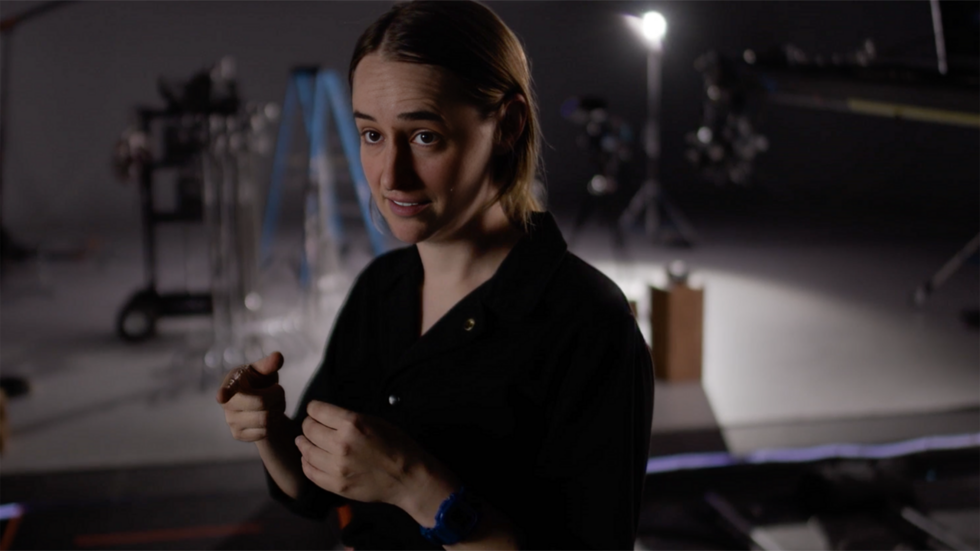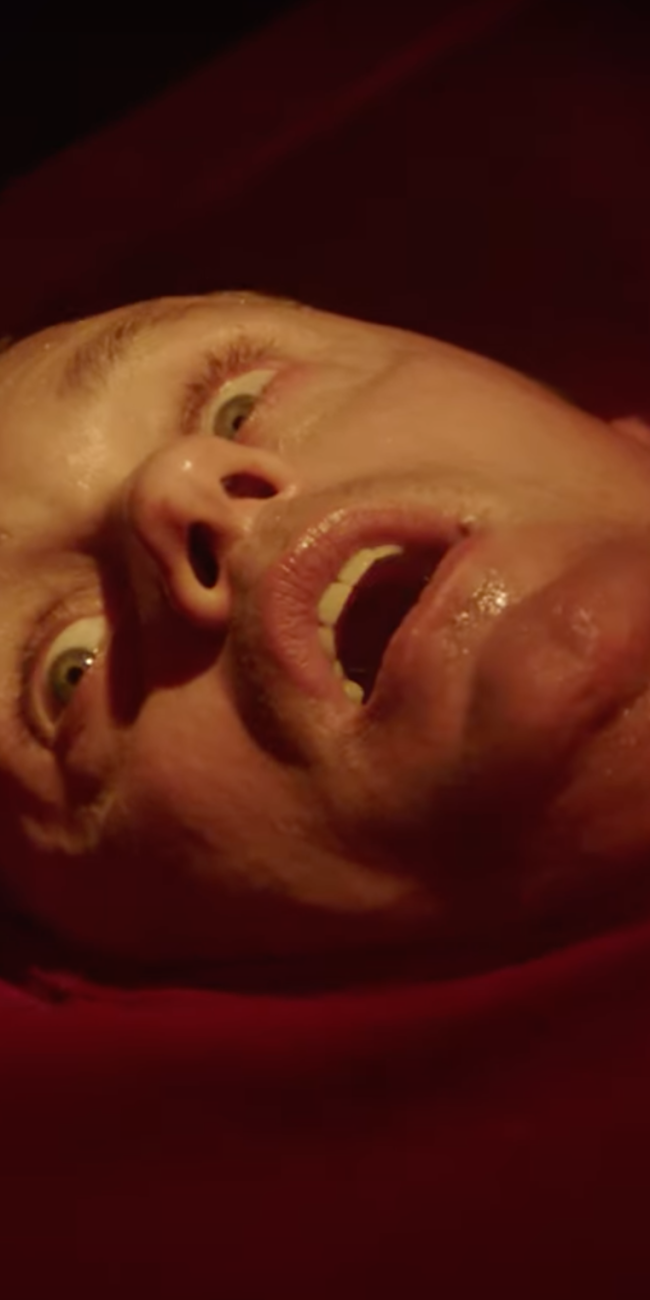BAD ACTOR: A HOLLYWOOD PONZI SCHEME

(The 2024 Tribeca Film Festival ran June 5-16, and as always, we have many boots on the ground. Check out Melanie Addington’s Bad Actor: A Hollywood Ponzi Scheme movie review. Seen it? Join the conversation with HtN on our Letterboxd Page.)
Spoilers: We talk about the director of the film and plot points which could ruin the film before seeing it.
True crime and Hollywood colliding makes for a wild documentary in Bad Actor: A Hollywood Ponzi Scheme, which premiered at Tribeca this year. When you have one of the most interesting headlines to come out in recent years and a subject who won’t talk to you, a lesser director may have straightforwardly told the story. But Director Joslyn Jensen was supported in telling the story of Zachary Horwitz, D-List star and con-man by some great indie producers, Dan O’ Meara, Ted Speaker, Matthew Cherchio, and co-producer Morgan J. Fox.
Mid-COVID in 2021 the FBI arrested Zachary Horwitz (his stage name is Zach Avery and is used interchangeably) after investors reported a suspected fraud as profits dried up. With a crippled industry due to the pandemic, the ability to convince more people to buy into the scheme to “deliver profits” was no longer feasible and the cracks in the facade began showing. Using both interviews with people who thought him friends and those who invested believing in the paper trail he provided, Jensen lays out the trail of deceit in a clear fashion while also creating an enthralling story of her own.
Jensen’s way of using Horwitz’s words against him in his on-camera roles makes for a meta-deep dive into how he was eventually caught in his scheme. In a fragile world of hopeful creatives, Hollywood is perhaps an easy place to be deceived. Using his acting performances to provide color commentary on his real-life choices, the slippery slope between reality and fiction is blurred in this documentary.
Casting actors to play out some roles, Jensen also creates the mystique of examining our roles and identities as storytellers, herself even cast in a role. The fine line between hopefuls who move to Los Angeles to make it and those who cut corners to get to the top reveals much more than just a typical Ponzi scheme. With good technology and a will to live a lavish lifestyle, Horwitz is revealed to be a true sociopath, covering lie after lie to keep the money for himself to fund his acting roles (a pay-to-play role often played out in more films than many producers would like to admit).
A story larger than one man’s Ponzi scheme, it gets to the root of a house of cards system built on preying upon the weak. From young actors who pay for classes and go to auditions in hopes of making it, to the ruthless producers who convince through charm to give them money with investors often unable to see results, one bad apple could do years of damage to so many.
While the documentary doesn’t pretend to have all the answers, Jensen does have all the right questions. She takes us down the rabbit hole of how this is even possible to defraud $227 million using some fake Netflix contracts. But at the end of the film, we realize we are defrauding ourselves with Joslyn Jensen never the actual director, but playing a role on camera as “the director.”
While we start to suspect something doesn’t sit right with Jensen in moments intertwined with takes of other “directors” we learn that David Darg directed the film with Jensen’s major role to carry the audience through their deception as they marvel at how others could be so tricked. Darg serves as a cameraman and his voice is heard often while the lens focuses on Jensen as the actor turned director so we rarely question her truth.
A brilliant way to tackle such a story that forces the audience to sit with their first reactions to such a film, in a way that we often digest true crime, feeling superior to those defrauded as if we wouldn’t see the red flags. And yet, for most of us on first watch, we are as easily duped thanks to good storytelling as anyone who handed money over to Horwitz. It’s a film that demands a second viewing only to see what you didn’t catch or where your gut hit but you suppressed.
A larger conversation about the narrative storytelling aspect of documentary versus reflecting exactly what happens could be had around the film as we enter into a new era of docu-tainment ala Tiger King where while the truth may be stranger than fiction, the old standby of making the story spin just the way you want may be the real root of this tale as we enter a new AI world where media literacy may be more critical than ever before.
– Melanie Addington (@MelAddington)
2024 Tribeca Film Festival; Bad Actor: A Hollywood Ponzi Scheme movie; Joslyn Jensen










